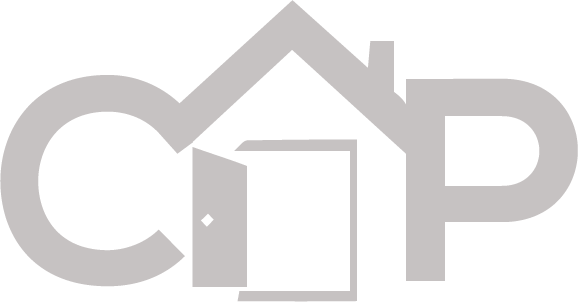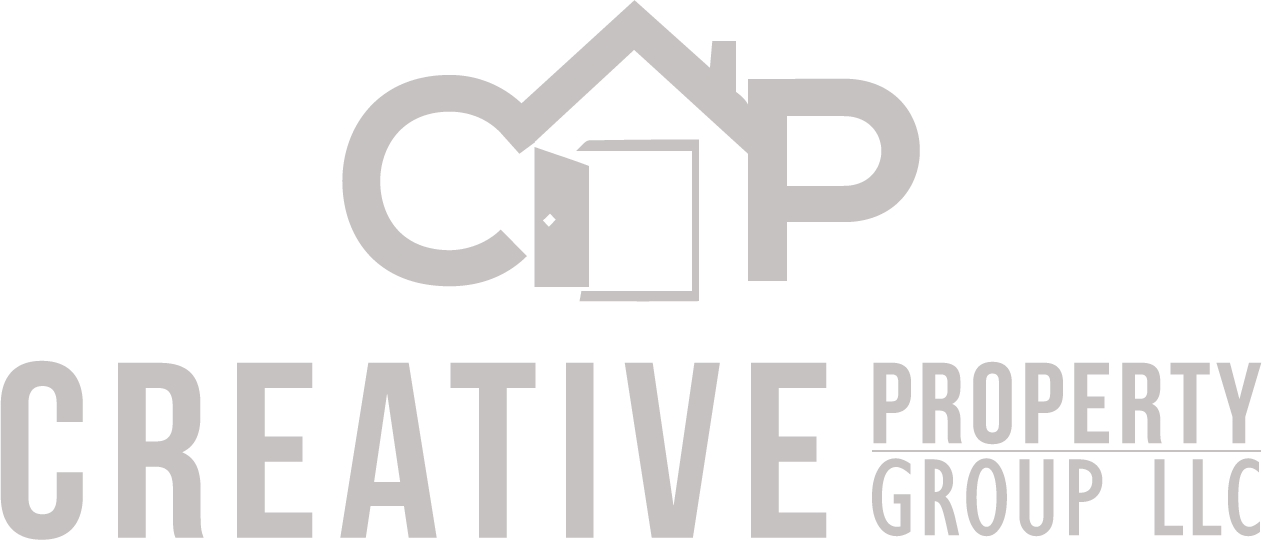Beginner’s Guide to Home Buying

Want to own a home but are feeling overwhelmed? We understand your struggle. Buying a home is an exhilarating adventure, packed with choices and a couple of obstacles. However, buying a home is a significant achievement in one’s life.
This article will guide you through the home buying process, from finances to closing the deal. We’ll also share some tips on discovering the significance of credit scores, mortgage details, and locating your ideal home in the right neighborhood. In addition, we will provide valuable insights on making offers, the closing process, and post-purchase expectations for your new home. Whether you are a first-time homebuyer or want to grow your investment portfolio, everything you’ll learn from our guide will help you make informed decisions. So keep reading.
What Is Home Buying?
Home buying is acquiring property to achieve homeownership, marking a significant commitment to one’s financial and personal future. Initially, it requires assessing one’s financial state, including choosing the right type of loan and mortgage lender, saving for a down payment, and understanding various mortgage options to ensure affordability. This will give you a better understanding of your income ratio and mortgage rate implication on your financial capability. Moreover, securing a mortgage preapproval signifies financial readiness and competitiveness for sellers in the market. The following steps involve searching for and selecting a suitable property, negotiating the purchase through an offer, conducting a detailed inspection to ensure the property’s condition, and finalizing the transaction through closing.
Each phase of home buying demands careful consideration and often the guidance of professionals such as real estate agents, mortgage advisors, and attorneys to navigate the complexities of the real estate market and legal requirements. Ultimately, buying a home represents a strategic investment, offering both the personal satisfaction of homeownership and the potential for financial growth over time.
What Are The Benefits of Buying Your Own Home?

Owning a home plays a crucial role in personal development and financial prosperity. Explore the benefits that come with homeownership:
Privacy and Ownership
Homeownership offers the ultimate privacy and control, allowing you to shape your living environment. This freedom means personalizing every corner of your space without seeking permission, creating a true sense of belonging.
Value for Money
Buying a home is a financially astute decision, where your mortgage payments build equity over time. As property values rise, so does your investment, laying the foundation for future financial gains.
Community
Home ownership places you at the heart of a community, fostering connections and a shared sense of responsibility. It’s an opportunity to build lasting relationships and contribute to the neighborhood’s well-being and security.
What Should You Know Before Buying A Home?
Before buying a home, it is vital to be well-informed of essential information since it has long-term impacts on your life. Here, we provide a simplified overview to help you get started.
Real Estate Market
The real estate market is a dynamic puzzle, with pieces always in motion. Before beginning your home search, it is crucial to understand the market conditions. For example, in a buyer’s market, there are more homes for sale than buyers. This will give you more bargaining power. On the other hand, homes can sell quickly in a seller’s market. You won’t be able to negotiate for your desired home price as many people are ready to buy it despite the high prices. Monitoring these factors can assist in determining optimal purchasing opportunities. Always remember that prices change depending on supply and demand, location, and the economy.
Types of Homes
Are you envisioning a cozy bungalow, a spacious single-family home, or a stylish townhouse? Every house has its advantages and things to think about. Single-family homes provide ample privacy and room but require additional upkeep. Townhouses in a community may provide amenities such as landscaping and maintenance. But they offer less privacy. Also, consider condos, as they require less maintenance. When choosing your home, always consider your lifestyle and need to make the best decision.
Read also: Unlocking Opportunities: A Comprehensive Guide to Buying Foreclosed Homes
Financial Readiness
Before exploring home tours and open houses, carefully assess your finances. Are you prepared to purchase a home? It goes beyond just having enough for a down payment. Consider your job security, savings for unforeseen costs, and monthly costs, including mortgage payments, insurance, and housing expenses.
Read also: 5 Ways To Improve Your Finances
How Can You Financially Prepare for Buying A Home?

Before buying a home, you must carefully examine your finances for a smooth and stress-free purchase. Being financially prepared allows you to enjoy the freedom of having your own house. Here’s how to lay a solid financial foundation for getting your dream home.
Improve Your Credit Score
Your credit score is crucial when buying a home. It helps lenders gauge your reliability in repaying debts. Improving your score can lead to lower interest rates on your mortgage, which saves you money in the long run. You can improve your credit score by reviewing your credit report from a major credit bureau. Pay your outstanding debts on your credit cards as well. Incorporating private mortgage insurance may be necessary for those who cannot make a 20% down payment, offering protection to mortgage lenders against the risk of loan default.
Learn The Different Types of Mortgages
There are many mortgage options available, and each has its advantages. Many prefer conventional loans but typically need a higher credit score and a larger down payment. Federal government programs or government-backed loans, such as FHA loans, could be a good option if you want a lower down payment requirement. Veterans may find VA loans a good choice, as they offer favorable terms and do not require a down payment. You can find the best fit for your financial situation by researching different loan types and understanding these options.
Read also: 5 Tips To Help Secure Financing
Understanding the type of mortgage and the impact of mortgage interest rates on your monthly loan payment can significantly affect your budget, giving importance to choosing the right mortgage loan for your situation.
Leverage Mortgage Calculators
Mortgage calculators are handy for financial planning. They can assist you in calculating your monthly mortgage payment, covering principal, interest, property taxes, and homeowners insurance. These tools are essential for budgeting and determining an affordable home price without straining your finances.
Save for Payment and Closing Costs
Begin saving early and consider first-time home buyer programs that provide down payment assistance. Keep in mind that a more significant down payment means a smaller monthly payment. Do not forget about closing costs when buying a home. They can be 2% to 5% of the purchase price in addition to the down payment.
Build Your Emergency Fund
An emergency fund provides financial security and peace of mind throughout the home buying journey. Strive to save enough money to cover three to six months of living expenses. This fund can help you handle unexpected repairs or financial challenges. Most importantly, this can help you avoid falling behind on your mortgage when times get tough.
How To Navigate The Mortgage Application Process?
Securing a mortgage is an essential part of buying a home. But sometimes, it can be confusing to navigate. No need to worry. With proper preparation and a clear understanding of what to expect, you can make this journey smoother and more empowering. Here’s how to confidently navigate the mortgage application process.
Evaluate Your Financial Capability
Before exploring applications, it is essential to assess your financial well-being. Begin by getting your credit report to verify its accuracy. Understand what lenders will see when reviewing your credit history. Then, collect all required documents, such as income proof, tax returns, and details about your monthly debt obligations and assets. This preparation will make the process easier and less overwhelming.
Make Your Preapproval Letter Ready
A preapproval letter is essential when buying a home. It demonstrates to sellers that you are a committed buyer with the necessary funds to finalize the purchase. Before you get approved, lenders will provide an estimated amount of the loan based on an initial review of your finances. Doing this lets you focus on affordable homes and improve your bargaining power. The loan process from application to approval involves several critical steps, including the assessment of monthly debts and income ratio to ensure buyers meet lender’s minimum credit score requirements.
Decide Your Mortgage
There are different types of mortgages or purchase loans you can choose from. Would you prefer a fixed-rate mortgage with a consistent interest rate throughout the loan term? Or do you want an adjustable-rate mortgage that may have lower initial rates but can fluctuate in the future? Consider your future financial goals and talk to a mortgage broker or lender to determine the best option.
When you apply for a mortgage, you will get a loan estimate form that shows the loan terms. Some terms include interest rate, monthly payments, and closing costs. Please carefully review this document. If you don’t understand unfamiliar terms or conditions, ask. Clarifying early loan repayment penalties or mortgage payment relief options will allow you to handle future financial challenges.
Once you have selected a lender and mortgage type, you must complete the application process. This involves a detailed review of your finances and a home appraisal to determine the property’s value. Stay in close contact with your lender to quickly address any questions or provide additional documents.
How Do You Find Your Dream Home?

Finding your dream home is an exciting part of the home-buying process. Discover the perfect location for your future endeavors. With numerous options and factors to consider, where should one begin? Discover the ideal home with this helpful guide.
Identify Your Preferred Location
The location of a home is still a crucial factor in the buying process. Make sure to consider your preferences. Do you prefer the tranquility of the suburbs or the excitement of the city? What proximity do you like to work, schools, parks, and shopping? Where you live impacts your daily life and the value of your home over time. Factors such as the school district and crime rate must be considered. These can affect your quality of life and potential resale value.
Consider Your Home’s Features
To find your dream house, prioritize essential items over optional ones. How many bedrooms and bathrooms do you require? Do you prefer a spacious backyard or a contemporary kitchen? Making cosmetic changes is easier than modifying fundamental features such as size and floor plan. Consider your needs and priorities when finding homes that match your lifestyle.
Find A Reliable Real Estate Agent
Working with a reliable real estate agent is pivotal in navigating the homebuying journey to finding your dream home. Their expertise offers an unmatched advantage, from uncovering listings that meet your needs to providing invaluable insights into the local market. To find a trustworthy agent, seek recommendations from friends or family, check online reviews, and interview potential agents to ensure their experience aligns with your needs. While home buying websites are helpful for initial research, offering listings, photos, and virtual tours, the personalized service of a real estate agent is indispensable for a seamless home-buying experience.
Do A Property Visit
Conduct an ocular visit of your potential home to know how the space feels. Do you envision yourself living in that house? Assess the home’s condition as well. Look for signs of proper or inadequate maintenance. Consider the possibility of future changes to customize the home to your preferences and requirements. Additionally, consider the neighborhood’s general attractiveness and how well it suits your lifestyle.
Make The Decision
After checking out multiple homes, you may find one that feels perfect. Listen to your gut while thoroughly considering all your knowledge about the home. Take another look at your must-haves. Factor in the location and evaluate the home’s potential for future growth. Visiting the property at different times is a good idea to understand the neighborhood better.
What Goes Into Making An Offer and Closing The Deal?
Great job! You have discovered your ideal home! Now, it is time to make it your own. The offer and closing stages are the climax of your home buying journey. So, how can you navigate these final steps effectively? Let us simplify it into smaller sections to help you easily reach your goal.
Create An Offer
When making an offer on a home, it is important to consider both the seller’s needs and your interests. Start by getting a good grasp of the local real estate market. To get the property, you might have to offer more than the asking price in a seller’s market. While in a buyer’s market, there may be more room for negotiation. A real estate agent can provide valuable guidance during this process. He/she can help you make a competitive and fair offer by considering similar home sales and market conditions.
Read also: Best Way to Find Distressed Properties: A Complete Guide
Ensure your offer includes critical contingencies like a property inspection report to verify safety and condition, plus proof of funds or financing conditions to secure your mortgage. These safeguards protect your deposit, allowing withdrawal without financial loss if standards aren’t met.
Closing Cost
Closing costs encompass the fees and expenses required to complete the home-buying process and to facilitate the transfer of home ownership. Fees can vary. But usually, 2%–5% is added to the purchase price. This covers title search fees, real estate attorney fees, homeowners insurance, and more. The closing costs can be negotiated between qualified buyers and sellers. In addition, carefully review the closing disclosure provided by the lender to understand all financial details.
Closing Process
Closing is the final step where the home becomes officially yours. Before the day begins, there are a few tasks you should complete:
- Make sure your mortgage is approved and ready to go.
- Perform a comprehensive home inspection to identify any problems that require attention.
- Take one more visit to the home to ensure it is in the desired condition.
You must sign important documents like mortgage agreements and property transfer papers during closing. You will now make your downpayment and pay the closing cost. After all the paperwork is completed and payment is made, you will receive the keys to your new home.
What Should You Do After Buying Your Home?

At last, you have the keys, and the home buying process is finished. What is the next step? When you own a home, taking specific steps to make it feel like your own is crucial. After purchasing your home, follow these steps to ensure long-term success and comfort.
Secure Your Home
First, prioritize your home’s security. It is important to replace the locks on all exterior doors to ensure that unauthorized individuals do not have access. Installing a security system for property protection and peace of mind is best. Inspect and replace batteries in smoke detectors and carbon monoxide alarms that the past owner installed.
Transfer Utilities and Update Addresses
Make sure that you transfer all utilities to your name. These include water, electricity, gas, and internet services. Update your address with the post office, bank, and other important institutions. Include your subscriptions and online shopping accounts. Now that you have your new house, all the necessary letters, bills, and deliveries will be sent to your new address.
Do A Deep Cleaning and Maintenance Check
Before settling in, make sure to clean your home thoroughly. Consider hiring cleaning professionals to help you do deep cleaning. Also, it is essential to do regular maintenance checks to find any necessary repairs. Check for problems such as dripping faucets, running toilets, or indications of pest presence. Tackling these issues early can help you save time and money.
Plan Your Renovation and Decoration
Begin planning renovations or decorations to transform your house into your dream home. Focus on essential projects within the allocated budget. Simple updates, such as painting the walls or upgrading light fixtures, can significantly impact. Customize each space to match your preferences and requirements.
Pay Your Mortgages and Property Taxes
Make sure you know all the important information about your mortgage. List down your payment schedule, interest rate, and how to make payments. Additionally, grasp your property tax responsibilities. Understanding tax deadlines and planning for them can prevent unexpected issues later on. Also, managing your mortgage debt effectively is key to ensure to maintain financial stability and build equity in your home.
Discover The Community
Get to know your neighbors. It is also best to have neighborhood groups or social media pages to inform you about your local community. Discover the best spots, such as parks, restaurants, and shops. Developing connections and exploring your new surroundings will aid in your adjustment and create a sense of belonging.
What Special Considerations Should First-Time Home Buyers Know?
Entering the realm of homeownership can be exciting. But just like other things, it presents unique challenges and learning experiences. First-time home buyers must consider several factors as they begin this important journey. Here’s what you need to know to make your first home-buying experience smooth and successful.
Learn Various Home Buyer Programs
Various countries and regions have programs to assist first-time buyers. Some options available are grants for down payments, closing cost assistance, and favorable loan terms. For example, FHA loans have lower downpayment requirements. VA loans offer excellent terms for veterans and active military members. Exploring and utilizing these programs can help make homeownership easier and more affordable.
Save for The Associated Costs
Many first-time buyers only prioritize the home’s purchase price. But it is crucial to consider additional expenses in your budget as well. When saving money, do a lot for closing costs, property taxes, and homeowners insurance. Additionally, consider moving costs, purchasing furniture, and any necessary repairs or renovations for your new home. Developing a thorough budget that covers these expenses will help avoid unexpected situations and maintain financial security.
Maintain A Good Credit Score
Your credit score affects your mortgage terms and interest rates. Before the home buying process begins, it is important to review your credit report for any errors and focus on boosting your score if needed. Making timely bill payments will help you get a good credit score.
Ask for A Home Inspection Report
Always ask for the home inspection report. This step is important because it can reveal hidden problems with the property that could be expensive. If the home seller cannot provide this, you can negotiate a lower price.
Plan for the Future
When purchasing your first home, it is important to think about your future goals. Do you plan to start a family, change jobs, or relocate? Your home must meet your current needs and be able to adapt to your future goals.
Frequently Asked Questions
Starting the process of buying a home can bring up many questions. Particularly for first-time buyers who are going through this important milestone. Here, we answer common questions to help you understand the process and make informed decisions.
What Do I Need to Start The Home Buying Process?
Begin by checking your financial health. Ensure your credit is strong, save for a down payment, and get a mortgage preapproval. This sets you up as a serious buyer.
How Do I Know If I Can Afford to Buy A House?
An affordability calculator can determine what price range fits your budget. Just input your income, debt, and down payment. Consider also the additional costs like taxes and insurance.
Do I Need A Real Estate Agent to Buy A Home?
You don’t need a real estate agent. However, realtors can guide you through the buying process. They can help you find properties, negotiate deals, and handle paperwork. For first-time buyers, it is best to work with realtors.
How Long Does It Take to Buy A Home?
It typically takes 30 to 60 days from offer acceptance to closing. Delays can arise if there are issues in financing, paperwork, or inspections.
Can I Negotiate The Price of A Home?
Yes. Your offer should reflect the home’s value, market conditions, and how long it’s been up for sale. Your agent can help craft a robust negotiation strategy.
Wrapping Up
Securing your traditional single-family home or any property type often involves navigating competitive housing markets. A steady income, proof of pre-approval, and a solid track record with credit bureaus and credit unions can make all the difference.
Creative Property Group is here to guide you as you start your home buying journey. The process becomes less daunting with proper preparation, knowledge, and our team’s support. By understanding each step, from searching for your dream home to finalizing the deal, we will empower you to navigate this journey confidently. Contact us today, and let us guide you toward your future space.

